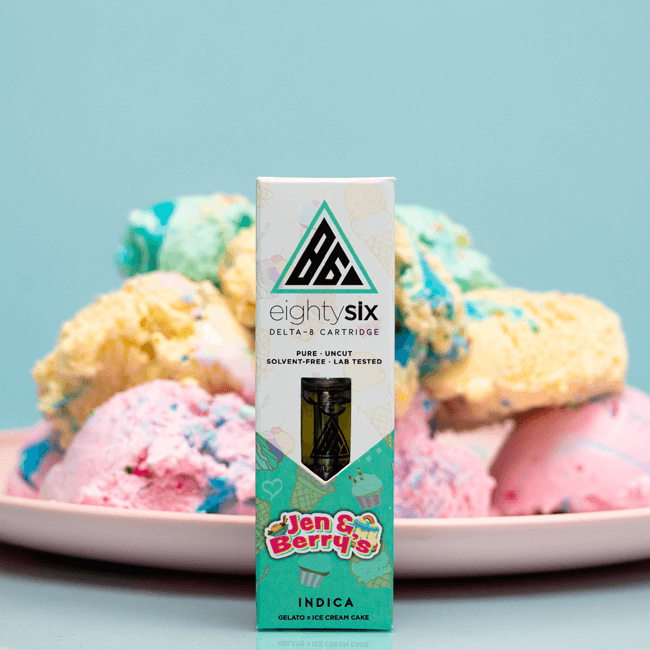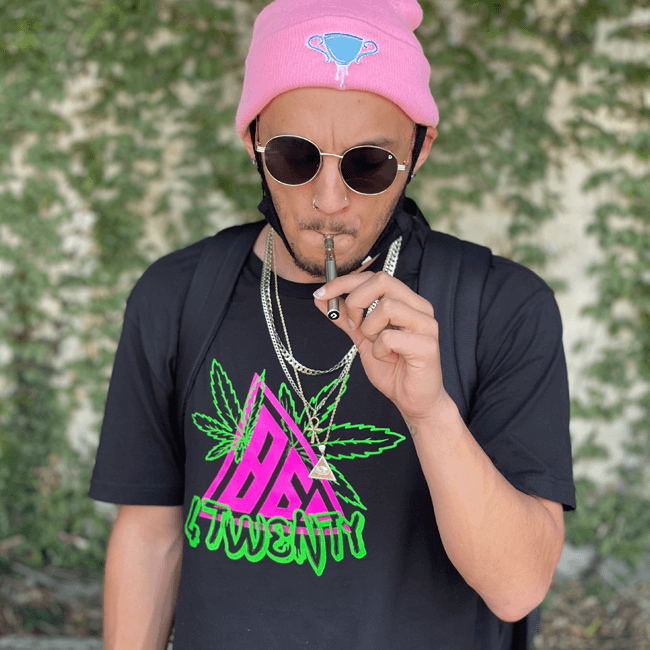Let's talk about whether or not Delta-8 THC is legal. Delta-8 THC is a lesser-known cannabinoid, but one that's rising in popularity at a record pace. More research is certainly welcome on the subject, but what we've seen so far of Delta-8 is that it delivers all the benefits of Delta-9 THC without the adverse side effects that some may experience with it.
With Delta-8 making its way into the spotlight, people are bound to have questions:- Is Delta-8 THC legal?
- Why can you buy it online if you're not in a state where cannabis is recreationally legal yet?
- What exactly did the DEA rule clarify in August - and, in short, does it stop you from being able to purchase a Delta-8 cartridge right now?
So What is the Now-Current Legal Status of Delta-8?
We understand the need to know if Delta-8 THC is legal. We set the record straight in this guide, giving you all the information you need about the current legality of Delta-8 on the federal level. It should be easy to understand laws so that we can follow them accordingly, so we want to break down the legal terminology behind the 2018 Farm Bill and all its addendums thus far.
Keep in mind, the information contained on this page and website is for informational purposes only. It is not legal advice. While we try to stay as up-to-date as possible on all state and federal laws, the laws — especially at the state level — are constantly changing. You should do your own due diligence and work with a legal professional to ensure you are operating legally in your state or territory at all times.
First Things First — What Does the DEA Rule Say?
Is Delta-8 THC legal?
Let’s dive into that. The additional rules added to the 2018 Farm Bill in August 2020 were put in place to help reiterate what was already mandated under the Farm Bill. According to this update, the "DEA's regulatory authority over any plant with less than 0.3% THC content on a dry weight basis, and any of the plant's derivatives under the 0.3% THC content limit, is removed..."
However, this "THC content" is defined as Delta-9 THC — not Delta-8.
The four changes were as follows:
- The Schedule I definition of the "Marihuana Extract" was modified to be limited to extracts that contain greater than 0.3% Delta-9 THC on a dry weight basis. That means regardless of whether the extract comes from hemp or marijuana, it must contain 0.3% Delta-9 THC or less to retain its legality.
- Epidiolex and any generics the FDA may subsequently approve in the future have been removed completely from the Controlled Substances Act. This medicine has been known to treat rare forms of childhood epilepsy.
- The import and export permits for Epidiolex were removed.
- Finally, the definition of "Tetrahydrocannabinols" was modified in the Schedule I section of the Schedule of Controlled Substances. The definition was modified to carve out "any material, compound, mixture, or preparation that falls within the definition of hemp" which is defined in the 2018 Farm Bill.
- The FDA's jurisdiction over cannabis and cannabis-derived products hasn't been altered in any way based on these changes.
- A product is a controlled substance if it contains more than 0.3% Delta-9 THC, regardless of what any product label may state.
- If any hemp or cannabis product contains more than 0.3% Delta-9 THC, it is considered a controlled substance.
- Any synthetically-derived THC is a controlled substance — the THC content does not matter.
- THC that naturally occurs in a cannabis plant, whether it be hemp or marijuana, is not a controlled substance if it contains 0.3% Delta-9 or less.
Technically, Delta-8 can fit the criteria for a controlled substance if you're using high concentrations of hemp to naturally extract the THC. That being said, if the product is derived from hemp and contains 0.3% Delta-9 THC or less, it's likely legal.
Delta-8 was added to the schedule list, however, so it's unlikely that the government intended for this pathway to get access to THC legally. In reality, the law might change one day; for now, Delta-8 continues to reign supreme as a psychoactive cannabinoid that provides a high without the paranoia and other side effects that sometimes come along with Delta-9.
How is Delta-8 THC Legal?

The Delta-8 THC cartridges and Delta-8 edibles we offer are derived from hemp naturally. There are no synthetic materials, and each cartridge is also batch-tested for pesticides, metals, and other contaminants. Through the concentration of esoteric cannabinoids, we can condense all of the Delta-8 THC found throughout our hemp strains. Condensing the Delta-8 into an extraction allows us to craft a product that's under the 0.3% Delta-9 THC limit with a sufficient dose of Delta-8 instead.
It's important to note the big distinction here between our products and how some other Delta-8 products are crafted. Synthetically-derived is not an option for our brand, especially given that any synthetically-derived THC is a controlled substance. We ensure there’s nothing synthetic involved in our operation.
Is Hemp-Derived Delta-8 THC Synthetically-Derived?
The Delta-8 THC derived from the hemp strains we've hand-selected is not synthetically-derived. However, we can't speak for every brand in the industry. Even though it's been labeled as a controlled substance, countless brands offer synthetic THC under the radar. This mislabeling issue is common in the CBD industry, so it’s unsurprising that it’s moved on to Delta-8.
Fortunately, we have lab test results to back up what we offer here. Each product in our collection is batch-tested for its purity, potency, safety, and accuracy. Our numbers are calculated with precision, giving us confidence in the consistency of our formula and technique, and in our ability to ensure that our Delta-8 THC is legal. With a steadily-growing community of happy users, we know we're doing something right.
Is Delta-8 Safe to Use?
Former marijuana users report experiencing the very best of what Delta-9 THC used to offer them — without the negatives — when it comes to using Delta-8 THC products. For those new to either cannabinoid, it's a euphoric experience they always seem to enjoy. Something that helps stimulate relaxation while also kicking in some focus is a welcome new medium for some.
As far as its safety, Delta-8 is coded as similar to CBD, which reportedly has a high safety profile. While it is psychoactive, it does not produce the paranoia feelings users report when using Delta-9. For users that find they have to stop consuming cannabis because it triggers these negative side effects, Delta-8 might be the legal THC solution you've been waiting for.



